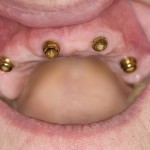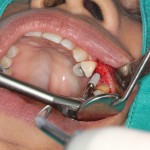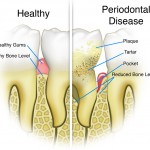
Bacteraemia is common following dental procedures and it was believed that this could lead to bacteria endocarditis a severe infection of the lining of the chambers of the heart with a high mortality rate. Until 2008 when National Institute for Health and Care Excellence (NICE) recommended that antibiotics were not required guidelines in many countries [read the full story…]












